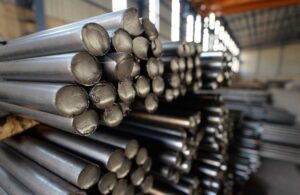INTERNAL AND EXTERNAL DEBT OF UKRAINE IN 2009-2021


Ukraine will officially lead the European Union’s strategy for the Danube region for 2022 on Wednesday, Ukrainian Foreign Minister Dmytro Kuleba has said.
“Today, Ukraine will officially lead the EU strategy for the Danube region for next year. In Bratislava, a ceremony will take place for the transfer of chairmanship from Slovakia to Ukraine, which will be represented by a delegation led by Deputy Minister of Community and Territorial Development, National Coordinator of the Danube Strategy Ihor Korkhov,” said Kuleba at an online briefing on Wednesday.
He stressed that Ukraine will become the first state, which, not being an EU member, will coordinate the activities of 14 countries of the Danube River Basin and the implementation of EU strategic initiatives in the region.
“Ukraine will take part in the formation of the EU regional policy at the level of the EU member states. Together with Ukraine’s chairmanship in the Danube Commission, this testifies to the establishment of our state as a European player in Central Europe,” the Foreign Minister said.
The minister added that an important and responsible mission of Ukraine will begin on Wednesday, October 27, and will last until the end of 2022. “The foreign policy strategy of Ukraine approves our state as an active participant in international politics. We no longer expect to be invited somewhere, we take the initiative, especially in our own region, where we are implementing an ambitious foreign policy and developing neighborhoods,” explained Kuleba.
The sixth Kyiv iGaming Affiliate Conference will take place on November 4, gathering everyone who drives traffic to gambling and wants to meet the top experts of the affiliate industry.

The event will unite experts who know a lot about how to get high-quality traffic in the gambling niche. Speakers will talk about market trends, prospects for its development and the latest tips for promoting iGaming platforms.
The program of the event will be divided into four blocks: “Trends in the iGaming Industry for 2022”, “Traffic”, “SEO” and “Social Networks”.
Event will be organized by Smile-Expo international company. Interfax Ukraine has become the General News Partner of the event.
Meet speakers of the conference
This autumn, leading industry representatives at Kyiv iGaming Affiliate Conference 2021 will analyze the latest changes in the gambling niche, talk about the best channels for attracting traffic and analyze effective approaches to promoting online casinos and bookmakers.
Introducing the first six speakers of the conference.

• Victor Karpenko – founder of SeoProfy website promotion service. Owner of LinkChecker.PRO. For over 14 years he has been successfully promoting projects at iGaming.
The speaker will make a presentation on the topic ““Step by step development of a SEO project in the gambling and betting industry: From 0 to result”. You will find out how to promote a resource and get to the top of search results without draining your budget.
• Alina Plyushch – co-founder of Sayenko Kharenko law firm. Included in the list of the best private wealth management lawyers. Over the past seven years, she has been actively developing new gambling legislation in Ukraine.
She will cover the topic “A year after legalization. What have already been achieved and what legal changes can be expected on the Ukrainian gambling market in 2022?” Alina will tell you why so few companies have entered the Ukrainian gambling market, and analyze what factors are holding back the development of the industry.
• Carlo Pagan – Former Vice President of Marketing at European Casino Association. Member of the Board at the European Casino Association.
The expert will present a report: “Innovations in game marketing”. He will talk about industry innovations and the 7P concept. He will also list the latest affiliate marketing tools.
• Nikita Petrenko – co-owner of ImproveTeam arbitration team. He has five years of experience in gambling and CPA marketing.
Topic: “Affiliate programs vs direct advertisers. Which models are better?” You will learn about the criteria for choosing an affiliate in arbitration, study the advantages and disadvantages of affiliate programs. In addition, Nikita will tell where to look for direct advertisers, share who ImproveTeam works with and why.
• Alisa Kirichok – EmailConsulting.top creator. Specializes in communications, gambling, fintech, crypto.
The topic of her talk is “Alternative traffic sources: web pushing, chatbots and email personalization”. She will explain how to grow traffic and get profit from different channels (email, SMS, push, Telegram).
• Maksym Sheyko – owner of Altairlabs.pro, the private crypto affiliate program. He specializes in the gambling and crypto spheres.
Presentation: “Facebook. How to master a moderation system or new bypass tricks”.
To be the first to know about new speakers, follow the updates on the official website.

Special offer for our audience
Get a 20% discount on a Business category ticket! A unique offer is available on the conference website using the KIAC06 promo code.
Hurry up to register before prices increase!

Don’t wait for too long and join Kyiv iGaming Affiliate Conference 2021 now. Get a unique opportunity to upgrade your skills, meet the best advertisers and find profitable offers!
More information and tickets are available at affiliateconf.com.ua
The sixth Kyiv iGaming Affiliate Conference will take place on November 4, gathering everyone who drives traffic to gambling and wants to meet the top experts of the affiliate industry.

The event will unite experts who know a lot about how to get high-quality traffic in the gambling niche. Speakers will talk about market trends, prospects for its development and the latest tips for promoting iGaming platforms.
The program of the event will be divided into four blocks: “Trends in the iGaming Industry for 2022”, “Traffic”, “SEO” and “Social Networks”.
Event will be organized by Smile-Expo international company. Interfax Ukraine has become the General News Partner of the event.
Meet speakers of the conference
This autumn, leading industry representatives at Kyiv iGaming Affiliate Conference 2021 will analyze the latest changes in the gambling niche, talk about the best channels for attracting traffic and analyze effective approaches to promoting online casinos and bookmakers.
Introducing the first six speakers of the conference.

• Victor Karpenko – founder of SeoProfy website promotion service. Owner of LinkChecker.PRO. For over 14 years he has been successfully promoting projects at iGaming.
The speaker will make a presentation on the topic ““Step by step development of a SEO project in the gambling and betting industry: From 0 to result”. You will find out how to promote a resource and get to the top of search results without draining your budget.
• Alina Plyushch – co-founder of Sayenko Kharenko law firm. Included in the list of the best private wealth management lawyers. Over the past seven years, she has been actively developing new gambling legislation in Ukraine.
She will cover the topic “A year after legalization. What have already been achieved and what legal changes can be expected on the Ukrainian gambling market in 2022?” Alina will tell you why so few companies have entered the Ukrainian gambling market, and analyze what factors are holding back the development of the industry.
• Carlo Pagan – Former Vice President of Marketing at European Casino Association. Member of the Board at the European Casino Association.
The expert will present a report: “Innovations in game marketing”. He will talk about industry innovations and the 7P concept. He will also list the latest affiliate marketing tools.
• Nikita Petrenko – co-owner of ImproveTeam arbitration team. He has five years of experience in gambling and CPA marketing.
Topic: “Affiliate programs vs direct advertisers. Which models are better?” You will learn about the criteria for choosing an affiliate in arbitration, study the advantages and disadvantages of affiliate programs. In addition, Nikita will tell where to look for direct advertisers, share who ImproveTeam works with and why.
• Alisa Kirichok – EmailConsulting.top creator. Specializes in communications, gambling, fintech, crypto.
The topic of her talk is “Alternative traffic sources: web pushing, chatbots and email personalization”. She will explain how to grow traffic and get profit from different channels (email, SMS, push, Telegram).
• Maksym Sheyko – owner of Altairlabs.pro, the private crypto affiliate program. He specializes in the gambling and crypto spheres.
Presentation: “Facebook. How to master a moderation system or new bypass tricks”.
To be the first to know about new speakers, follow the updates on the official website.

Special offer for our audience
Get a 20% discount on a Business category ticket! A unique offer is available on the conference website using the KIAC06 promo code.
Hurry up to register before prices increase!

Don’t wait for too long and join Kyiv iGaming Affiliate Conference 2021 now. Get a unique opportunity to upgrade your skills, meet the best advertisers and find profitable offers!
More information and tickets are available at affiliateconf.com.ua

In the first ten days of October, an upward price trend continued on the regional iron markets under the influence of the rise in prices for scrap metal and iron ore raw materials, Ukrainian Industry Expertise (UEX) said in a press release on Monday.
At the same time, in the U.S. market, consumers are under pressure from a deficit and a rapid rise in prices for high-quality scrap grades, so buyers are forced to return to contracting cast iron. Also, most of them are trying to accumulate sufficient stocks for the winter, buying large quantities without waiting for the rise in prices for raw materials. Despite the growth in demand and prices, producers of raw materials are in no hurry to unload warehouses, as they expect to maintain an upward trend in the coming month. As a result, cast iron quotes increased to $600-610 per tonne CIF.
A significant rise in the cost of flat products and a shortage of material on the Italian domestic market pushed the quotes for cast iron to rise to $590-595 per tonne CIF. The factories are experiencing a supply deficit driven by an increase in cast iron consumption in Turkey and the United States.
According to forecasts of the UEX analyst Yuriy Dobrovolsky, in the coming weeks the quotations of cast iron will increase amid the rising cost of scrap metal and the exhaustion of stocks at large importers. The prices will also be supported by a low supply from the main suppliers from Russia and Brazil, as well as the active creation of winter stocks by the main importers in Turkey and the Asian region.
In the second half of October, scrap prices continued to rise rapidly due to the catastrophic shortage of raw materials and the active formation of winter reserves by large importers of scrap.
In Turkey, deals are being made in all directions, with buyers willingly making concessions to suppliers, fearing that the upward trend will continue in the near future. The problem remains with the prompt supply of material for the current production programs amid weak internal scrap procurement. As a result, at the beginning of the second decade of October, quotations of scrap HMS 1 & 2 (80:20) rose to $500 per tonne CIF, which is $25 per tonne more than a week earlier. Crushed raw materials are traded by $10 per tonne more – at the level of $510-515 per tonne CIF.
In the Asian market, scrap prices are also moving rapidly upward on the back of growing demand for long products and a lack of supply in the domestic market. Japanese scrap suppliers noted an increasing demand for the material in the domestic market, which limits the volume of supplies to foreign destinations. As a result, scrap HMS1 rose in price to $490 per tonne CIF.
UEX analysts predict in the near future an increase in the price of scrap metal in connection with the replenishment of stocks by the largest buyers and the creation of reserves for the winter period. The quotes will also be supported by the dwindling supply of material from American and European suppliers, who feel a shortage of scrap in the domestic markets of their countries.

About 30% of adult Ukrainians have received at least one dose of a COVID-19 vaccine, Health Minister Viktor Liashko has said.
“A record daily number of 291,293 COVID-19 vaccine shots have been administered in Ukraine today. Owing to this, we have reached the figure of 30% of the adult population who have been vaccinated with at least one dose,” Liashko said at a press briefing on Wednesday.
Ukraine is using COVID-19 vaccines approved by the World Health Organization (WHO), and over 9 million vaccine doses are currently available at vaccination stations across the country, he said.
“We have vaccine supplies planned week by week for the period up to the end of the year. These include both vaccines procured using state budget funds and those shipped to the country owing to its participation in the global COVAX mechanism,” he said.
In line with the contracts concluded for the vaccine, Ukraine should receive another 13.4 million doses of Pfizer-BioNTech’s vaccine marketed under the tradename of Comirnaty by the end of 2021. Additionally, the shipment of 5.45 million vaccine doses under the COVAX program in 2021 has also been confirmed, he said.
“Thus, the overall number of vaccine doses Ukraine is expected to receive by the end of 2021 is 18.85 million,” Liashko said.